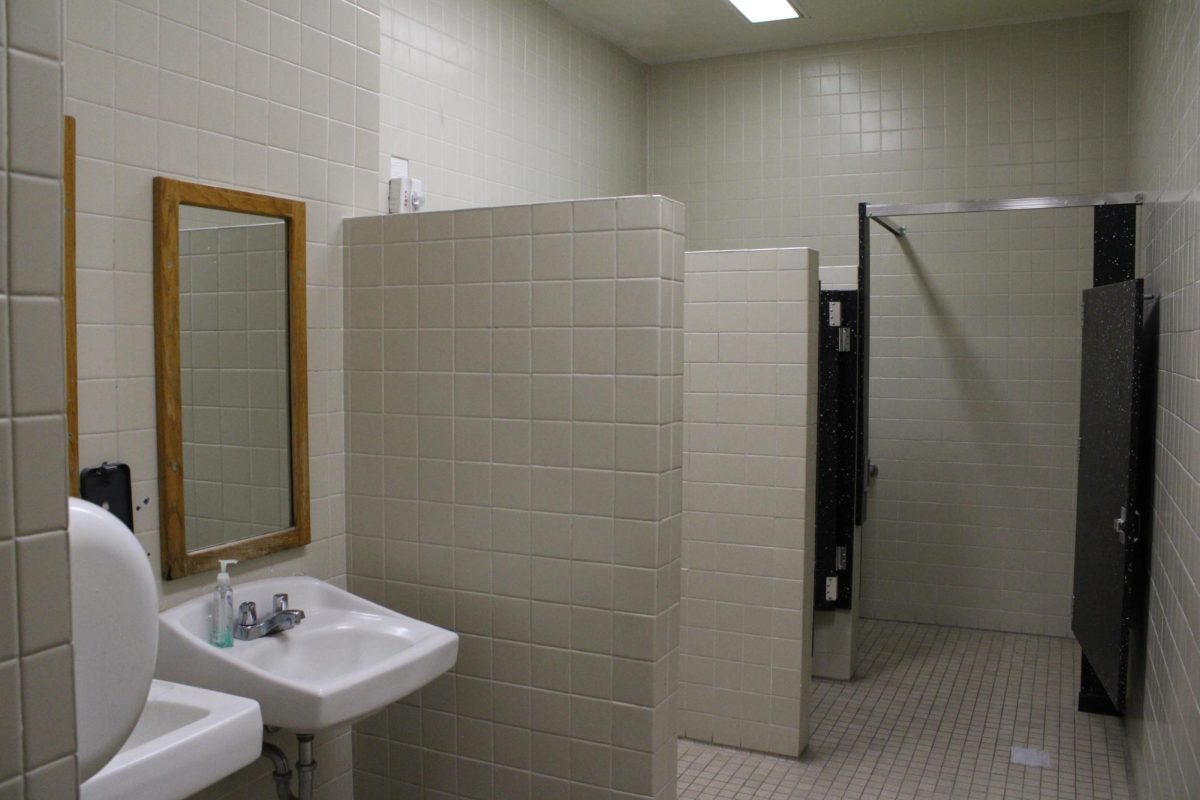Transgender student participation in sports evaluated on case-by-case basis
February 12, 2016
A new policy implemented in the state of Nebraska allows for transgender students to have more freedoms when it comes to participating in sports. Some believe that this policy is a step forward for transgender equality in high schools, while others think this is a negative for all athletes in Nebraska.
The policy states that transgender athletes who want to play a sport would have to ask a school to participate, then get approval from an NSAA eligibility committee. Two people on the NSAA board voted against the legislation, because they wanted to wait for a later assembly meeting in April before they made any decisions. This policy is only to decide what gender these athletes would play with in sports where both genders have teams. Sports like football and wrestling can be played by girls without having to appeal to a committee. That was decided through two previous lawsuits which says that the NSAA must allow girls to play in football and wrestling without going through the transgender policy.
Soon enough, a committee of doctors and psychiatrists will be assembled to assess each application by a transgender athlete. It is a case-by-case process, however the committee will have a basic set of guidelines. Among those criteria are reports from parents, friends, teachers, and physicians of the student’s consistent gender identity and expression with the gender opposite of their birth sex. It would also include medical records of hormone therapy and evaluations that make sure the transgender athlete does not have any physical advantages, particularly if a male wants to play with females.
While it is not known yet exactly how long the application process would be, some believe that this only discourages those transgender athletes from applying, because of a so-called “daunting” process.
Many have voiced opposition from the Nebraska American Civil Liberties Union to the Nebraska Family Alliance. Dr. Jim Tenopir, Executive Director of the NSAA, believes that the policy at least gives transgender students an opportunity to play. “It is difficult to know whether these processes discourage a transgender student from participating,” Tenopir said. “The policy makes it possible for transgender students to participate, something that previous regulations did not permit.”
Governor Pete Ricketts has also voiced his opposition, for the reason that he would not want his daughters playing against boys.
Currently, this is the policy in place for the NSAA. As previously stated, the NSAA holds its general assembly in April. There is legislation that may be introduced that would only allow transgender students to play with the gender with which they were at birth, countering the already passed legislation by the NSAA board. That vote would have to be passed by a three-fifths majority, and those bylaws would only become effective on August 1 if approved. According to Tenopir, it would basically disallow participation opportunities for all transgender students.
It might lead those to wonder; if there was a possibility that this new policy could be cancelled out, then why pass legislation at all? Tenopir backs up the decision by the NSAA, stating that is was necessary to make some sort of foundation. “The Board policy gives schools a protocol to start using immediately and would continue if until such time as a bylaw proposal passes,” Tenopir said. He also said that some schools have already called for NSAA action, because they have transgender athletes that want to participate, which may be why the NSAA chose to pass legislation right now. Even though the proposed assembly bylaws are a possibility, it is not assured.
As for the policy itself, it is currently difficult to tell how efficiently and how well the process will work. “The NSAA staff, Board and legal counsel have spent considerable time in crafting a policy that tries to tenets of competitive equity, safety and an expectation of personal privacy,” Tenopir said.
Whether or not any countering legislation passes, Tenopir believes that not acknowledging transgender students and not giving all athletes opportunities would be discriminating part of the NSAA’s student population.
“As educators, we must do all within our power to provide opportunities for all students, not just the varsity or college bound athlete,” Tenopir said. “The philosophy ‘every student, every day’ is the basis for our effort to try to provide participation opportunities for all students, even transgender students.”




















Donna B. Rood • Feb 12, 2016 at 9:12 pm
I can’t believe the editor let this girl’s mistakes pass…
Emma • Feb 12, 2016 at 6:44 pm
So I have a couple problems with this article. You say “male wanting to play with females” but this is incorrect because they are not male. You also confuse the terms “gender” and “sex” but they are not interchangeable, they do not mean the same thing. Nothing personal, I’m just unhappy with this.